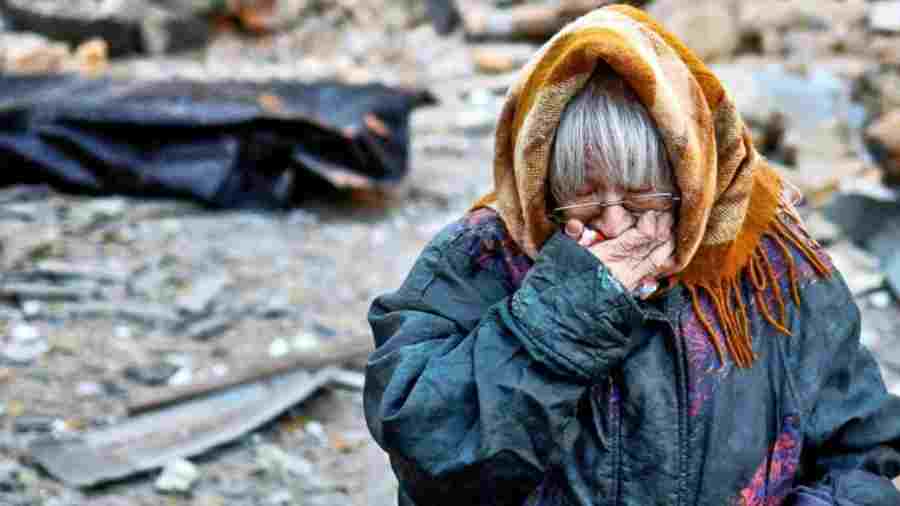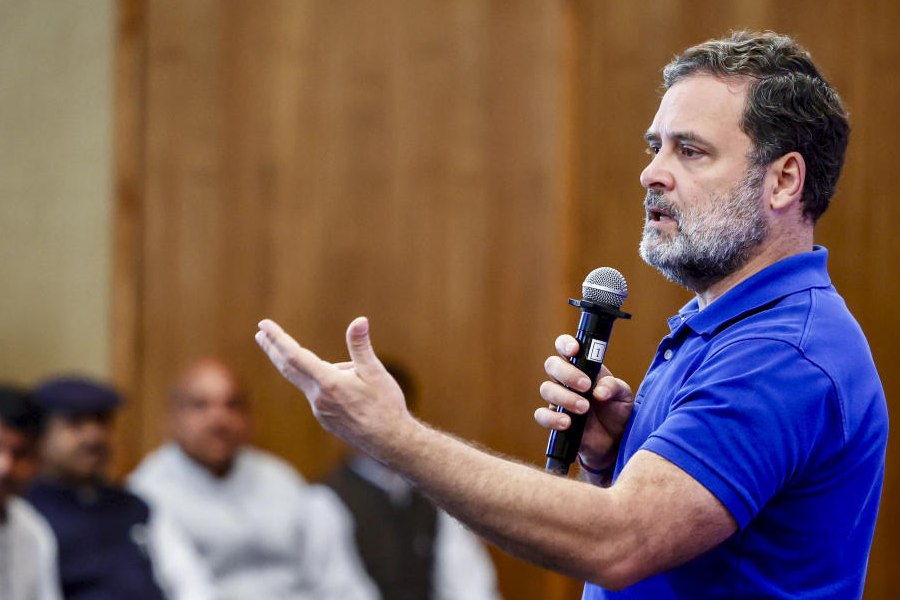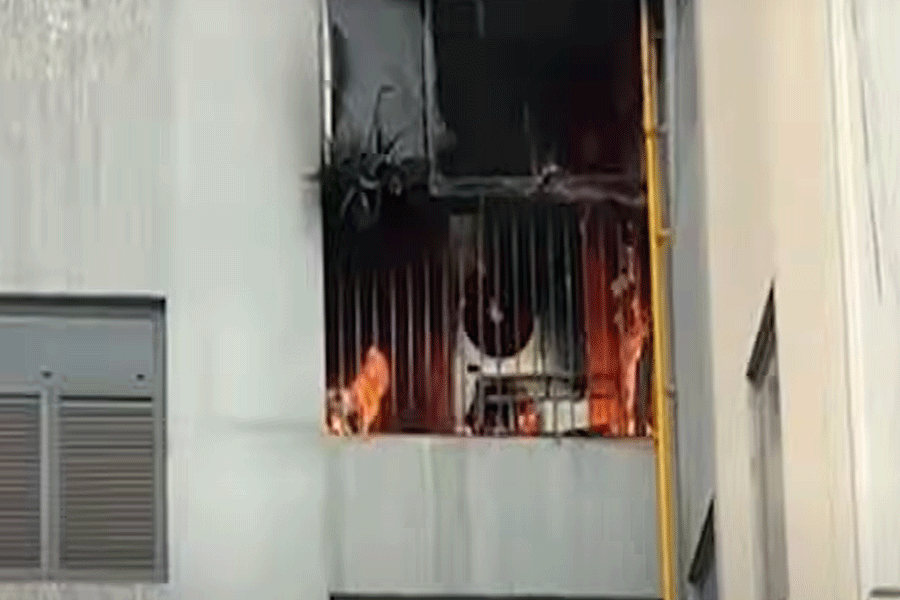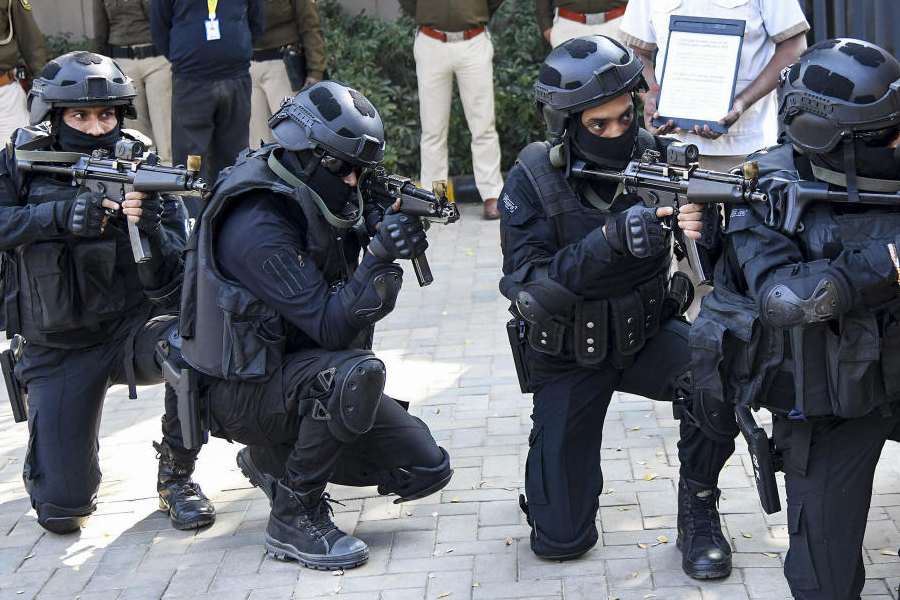Soon after Russia invaded Ukraine, the Russian poet and anti-war activist Daria Serenko escaped to Georgia, from where she now helps other dissenters fight and flee. In September, she posted an anguished poem on social media called “The Bridegrooms”.
The poem is about Russian soldiers who died fighting in Ukraine; but the Russian State, in denial about the war itself, ignores their fate. They are trapped between life and death: their coffins become tormented marriage-beds for the women betrothed to them. The latter’s revulsion at the ravaged corpses mingles with cherished memories of past companionship: they can neither embrace the dead nor bury them. They are both brides and widows.
The poem horrifically binds the living to the dead; but the dead, of course, do not feel the horror. It is the living who must cohabit with the disfigured bodies. Beyond the physical revulsion, it outrages their souls to accept a lie as the basic truth of their existence.
Countless people live out such lies in loveless relationships, of which the marriage coffin is a traumatizing symbol. But this poem looks beyond the personal to the political. By sending those men to their deaths, the State has betrayed its people. The men are dead, and the women trapped in a galling travesty of life, a spectral charade of exploded values: patriotism and sacrifice, familial and societal bonding, narratives of the nation. War has transformed these life-giving ideals into a regimen of lies.
Reports suggest that the common Russian is imperfectly informed about happenings in Ukraine. Many accept the government’s narrative, at least outwardly; some challenge it and suffer for their protest. But whichever side they take, they are bound by the terms of that narrative as enforced by an all-powerful State. The tattered rhetoric of nationalism grotesquely decks a discredited ideal, pernicious for both Russia and its adversaries.
But war is not the only ploy by which the State betrays its citizens. War merely lays open the decay and deceit latent in a great deal of social existence. Whether or not battling others, virtually every nation is at war with itself, corrupting and subverting the principles from which it claims authority. At times, the conflict erupts with particular violence. Shocked citizens find themselves embracing the dead relics of what should have been the vitalizing force of their lives. Yet they cannot let them go, for that would destroy all hope of order and revival. It is the only resort they have.
All nations, for example, swear by the welfare of the masses, however they might pursue that goal. Yet the gap is widening everywhere between the ultra-rich and the endemically deprived, the latter often growing poorer in absolute terms. In India in 2021, the top 1% of citizens owned 33% of the nation’s wealth (or more, by some estimates); the top 10% owned 64.6%; the bottom half, 5.9%. This disparity does not arouse the latter as it should: like uncomplaining bahus, they are submissively wedded to the dead rhetoric of a moribund welfarism set in a frame of historic inequality.
Beyond economic disparities, Indian society is increasingly defined by the demarcation of groups and communities. Ultimately, all these divisions bear on the issue of secularism and pluralism. These principles are embedded in our Constitution and professed by our rulers. Yet each day brings fresh evidence of open and unpunished hate speech, alienation of communities, and the persecution of those branded as Other. The living truth of our Constitution is turning into fiction with alarming speed. We are embracing the inert form of a dying ideal.
Again, our Constitution enshrines the freedom of thought and expression, our right to our own mental space. This freedom existed within living memory and has not yet disappeared. Yet any criticism, let alone opposition or dissent, is persecuted with growing rigour, while certain favoured sections enjoy appalling license of speech. That license is the opposite of true freedom: it underscores an agenda to coerce the national discourse to a particular bent.
Some might say I am being unreasonable. At all times, noble principles are ideals rather than achievable truths. No State has ever ensured perfect equality for all citizens, although we uphold equality as an imperative principle of governance and the rule of law. A society that openly rejects the notion (like South Africa in the apartheid era) reverts to a lower plane of civilization. So too all societies impose some curbs on free speech, not always with good reason. The heavens do not fall in consequence.
All this is true, but it does not meet the present case. All ideals are utopian, their execution imperfect: we accept that ingrained deficiency even as we grapple with it. That is different from a concerted programme to enfeeble or destroy those ideals. I am reminded of another poem, written in the last century by the Scottish poet Hugh MacDiarmid. A man making first love to his beloved is shocked to find her the victim of a primordial violation: “O who’s been here afore me, lass, / And how did he get in?” (I have simplified the Scots dialect.) The woman replies: “A man that died ere I was born / This evil thing has din (done).” That devastation is inherent in the human condition: the woman asserts they can still build a life with kindness, mutual support and even sexual satisfaction. The women in the Russian poem have no such hope: they are entrapped with the rotting corpses of men beyond love. Many persons and nations may feel they symbolically share that state, mocked by the hollow pietism of trashed ideals.
It is one thing to attempt and fail in a good cause, even through our own fault. It is another to abandon the cause itself while cynically retaining its formal trappings. The history of a nation is full of imperfect endeavours. The agony begins when the spirit energizing those endeavours dwindles and vanishes, leaving us to embrace its ghost.
(Sukanta Chaudhuri is Professor Emeritus, Jadavpur University)










